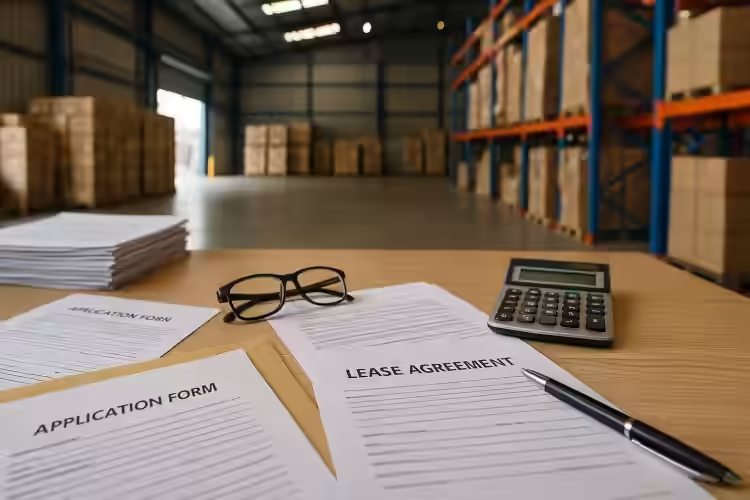What Documents Do You Need to Lease a Warehouse?
Why Landlords Care So Much About Paperwork
Let’s get one thing straight: leasing a warehouse isn’t like renting an apartment. It’s more like getting a small business loan. Landlords are essentially betting that you won’t default, trash the space, or violate zoning laws. So yeah—they’re gonnaask for more than just your driver’s license.
The Basic Documents Every Tenant Needs
So, let’s start with the must-haves—the documents you’ll almost always be asked to provide, no matter the market or lease type.- Government-issued ID: If you’re signing personally or offering a personal guarantee, you’ll need this.
- Business License or Registration: Show that your business is active and recognized by your state.
- Proof of Entity Formation: Usually your Articles of Incorporation or Certificate of Formation.
- Employer Identification Number (EIN): You can get this free from the IRS. Landlords often ask for it to run checks.
Your Financial Paper Trail
Here’s where things get real. Warehouse landlords—especially those dealing with larger industrial spaces—want proof that you can pay rent for the long haul. Here’s what they might request:- Last 2–3 years of business tax returns
- Recent profit & loss statements (especially if your tax returns are old or you’re growing fast)
- Bank statements (3–6 months’ worth is common)
- Balance sheet (if available)
- A personal guarantee (more on that below)
- A business plan with financial projections
- Proof of capital (investor letters, VC funding, etc.)
Legal Entity Docs: Proving You're Legit
Landlords want to know exactly who they’re signing a lease with. Especially if you’re leasing under a business name. Here’s what to have on hand:- Articles of Incorporation or LLC Formation – Shows when and where your entity was formed.
- Operating Agreement or Bylaws – Outlines who’s in charge and who can legally sign contracts.
- Certificate of Good Standing – Not always required, but looks great. It proves your business is compliant with your state.
Insurance Requirements: Don’t Skip This
If you only remember one section of this blog, make it this one. Almost every warehouse lease will require you to carry insurance—and show proof of it before you get the keys. Here's what most landlords want to see:- Certificate of Insurance (COI): This is the actual doc that shows your coverage.
- General Liability Insurance: Usually $1M–$2M in coverage is standard.
- Property or Contents Insurance: Covers your equipment or inventory stored in the warehouse.
- Workers’ Comp: If you’ve got employees on-site, this may be required by state law anyway.
Permits, Licenses & Zoning Considerations
This part gets overlooked a lot—until it's too late. Just because a warehouse is available doesn’t mean it’s zoned for your use. That’s your responsibility to verify.- Zoning Clearance Letter: Check with the city or county to confirm your business use is allowed.
- Certificate of Occupancy (CO): Some cities, like
Chicago, Illinois, require a new CO when tenants change. - Business or Sales Tax License: If you're distributing or selling goods.
- Fire Department Approval: Especially if you’re storing flammable materials or stacking pallets high.
Will You Need a Personal Guarantee?
Here’s the deal—if your company’s young, has shaky credit, or just doesn’t have deep financials, the landlord may ask for a personal guarantee. That means you (the human) agree to be financially responsible if your company bails.- A limited guarantee (up to 12 months of rent)
- A security deposit instead (sometimes 2–6 months)
- A letter of credit (less common, but more formal)
What Landlords Really Love to See
Want to be the tenant that gets the green light fast? Bring more than just the minimum. Here’s what makes a landlord’s eyes light up:- A business plan or pitch deck: If you're new, show your vision.
- Trade references: Prior landlords, suppliers, or logistics partners who’ll vouch for you.
- Photos of current operations: If you’re moving from another warehouse, show it. Nothing says “reliable tenant” like clean, organized operations.
- Details on your usage: Will you need forklifts? Truck access? A racking system? Landlords want to know you’ve thought it through.
Pro Tips to Speed Up Approval
You want that lease signed yesterday? Do these things right out of the gate:- Create a document folder—Google Drive, Dropbox, whatever. Dump everything in one place and share it with the broker or landlord.
- Pre-fill a tenant application—many landlords will ask for this anyway. Beat them to it.
- Loop in your insurance agent early—so you're not scrambling later for a COI.
- Ask the landlord for a checklist—some have formal tenant qualification packets. Use them.

